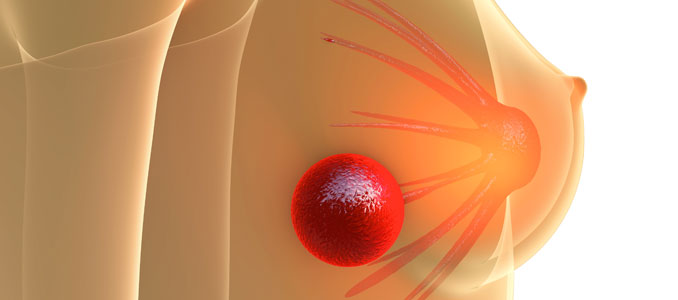Hormone Therapy for Breast Cancer
Hormone therapy to prevent breast cancer is different than using some form of hormone replacement therapy for treating menopause. HRT has long been given to women once they have started to notice symptoms such as loss of sexual desire, hot flashes, weight gain, mood swings, night sweats, foggy headedness, and other such concerns. Estrogen and progesterone are the two most commonly prescribed forms of treatment, but research has shown they come with great risks.
The use of prescription estrogen and progesterone have an increased incidence in the development of:
- Breast cancer
- Blood clots
- Heart attack
- Stroke
Women previously diagnosed with breast cancer are not considered viable candidates for these types of HRT. This is partly due because both estrogen and progesterone can promote the further growth of hormone-sensitive (or dependent) breast cancer.
This report will present an in-depth study on hormone therapy for breast cancer, citing numerous research studies to provide the latest data and current recommendations for possible treatments that can be utilized for the prevention and treatment of breast cancer in women. Information provided here is intended to offer educational guidance and does not, in any way, reverse or take the place of recommendations from a person’s own doctor.
Do Hormones Stimulate the Growth of Breast Cancer?
Research has shown that some hormones can stimulate breast cancer cellular growth, especially in women at a higher risk of developing this condition, or in those with a previous diagnosis. Many women who have been diagnosed in the past are concerned about receiving hormone therapy after breast cancer and for good reason. The statistics are not in their favor for HRT with estrogen or an estrogen/progesterone combination.
Breast cancer cells that are hormone-sensitive contain receptors (proteins) that are activated when the hormones bind to them, causing changes in the genes that can stimulate cell growth.
The average rates of breast cancers diagnosed in the US are:
- 234 cases for every 100,000 women from age 50 and 54
- 292 cases for every 100,000 women from age 55 and 59
The Women’s Health Initiative Randomized Trial placebo group had an incidence of 300/100,000, and the Million Women Study of those females who did not use any type of hormone replacement showed 325/100,000. The rate of breast cancer in women using estrogen or estrogen/progesterone hormone replacement in the WHI study was 380/100,000, and 501/100,000 in the MWS study.
This does not mean that there are no viable options for hormone replacement therapy for breast cancer survivors. Documented research has shown that many women dealing with perimenopause or menopause are also deficient in testosterone, another crucial hormone produced in the ovaries. Since some testosterone is naturally converted into estradiol (estrogen) in the body, some women are given an estrogen blocker – anastrozole – in combination with their testosterone therapy.
Treatment with testosterone has been demonstrated to reverse the symptoms associated with this change in life without increasing the risk of strokes, blood clots, heart attacks, or breast cancer. In fact, the results in terms of breast cancer and hormone replacement, testosterone treatment has been found to lower a female’s risk of developing breast cancer.
The results of the 2013 Dayton study of testosterone or testosterone/anastrozole use in women showed a reduced incidence of breast cancer cases to be at 142 per 100,000 – lower than the national average.
It is clear from the numbers presented here that the use of prescription estrogen and estrogen combined with progesterone increases the chance of breast cancer development, whereas treating menopausal symptoms with testosterone or testosterone and anastrozole reduced the incidence of breast cancer development below that of even women who never received any hormone replacement therapy.
Can Hormone Therapy Prevent Breast Cancer?
The use of hormone therapy to prevent breast cancer is important, especially for women who are predisposed to a higher risk due to genetics and family history. There have been many trials done on women who are at a higher risk of developing this disease with excellent results, including:
- 5 years of taking Raloxifene lowered breast cancer risk by 38% (only approved for use in postmenopausal women)
- 5 years of taking Tamoxifen reduced the development of invasive breast cancer by 50% in postmenopausal women with a higher predisposition to the disease
- 3 years of taking exemestane resulted in a reduced risk of 65% (not yet approved for prevention – only treatment)
Getting back to the Dayton breast cancer and testosterone therapy study, the 2013 report presented an interim 5-year analysis of a 10-year study showed that testosterone therapy decreased the incidence of developing breast cancer. The evidence suggests that maintaining a favorable testosterone to estrogen ratio can aid in the prevention and subsequent treatment of breast cancer.
How can Hormone Therapy Treat Breast Cancer?
There numerous methods of hormone replacement therapy to treat breast cancer. Ultimately, each woman must discuss the options with her doctor to make an educated decision on the best choice for her situation.
One possibility is to block ovarian function since the ovaries are the primary source of estrogen production. Here are the options available:
- Ovarian ablation – either through surgical removal of the ovaries (oophorectomy) or with radiation treatment
- Drug therapies – goserelin and leuprolide interfere with the pituitary gland’s signals to stimulate estrogen production in the ovaries
Another method of breast cancer hormone therapy is using a medication to block the effects of estrogen on cancer cell growth. Possible medications include:
- Selective estrogen receptor modulators – SERMs (tamoxifen, raloxifene, toremifene) bind to the estrogen receptors so that estrogen itself cannot bind to them. These medications can both block estrogen activity and mimic its effects in specific tissues.
- Fulvestrant – this medication solely blocks estrogen’s effects
The next hormone replacement therapy for breast cancer option is directly blocking estrogen production with aromatase inhibitors such as anastrozole, letrozole (both temporary inhibitors), or exemestane (permanently inactivates aromatase).
Finally, we have breast cancer and testosterone cypionate injections given intramuscularly every 2 to 4 weeks, and are used in women who are premenopausal, have had an oophorectomy, and have a hormone-responsive tumor, as well as those with advancing inoperable metastatic mammary cancer and are 1 to 5 years postmenopausal. Not only does this type of hormone replacement therapy help with preventing breast cancer, but is can also be used to treat it for some women.
Side Effects of Hormone Therapy for Breast Cancer
Examining breast cancer and hormone therapy side effects will also help some women determine which type of treatment they may be most inclined to try, especially if the doctor recommends more than one option. It will also help provide a look at what can be expected. A breakdown of these possible side effects will be shown below.
The various types of hormone replacement therapy and breast cancer side effects are:
Ovarian Suppression
- Depression
- Mood swings
- Bone loss – osteoporosis
- Decreased sexual desire
Aromatase Inhibitors
- Bone loss
- Joint pain
- Mood swings
- Depression
- Increased risk of heart failure or attack, angina, hypercholesterolemia
Raloxifene
- Increased risk of blood clots in legs and lungs
- Stroke in some individuals
Tamoxifen
- Increased risk of blood clots in legs and lungs
- Stroke
- Depression and mood swings
- Loss of libido
- Cataracts
- Uterine and endometrial cancer
Fulvestrant
- Pain
- Loss of strength
- Gastrointestinal symptoms
Testosterone Cypionate Injections
- Oily skin or acne
- Nausea or vomiting
- Headache
- Hair loss
- Changes in sexual desire
The testosterone implant used in the study cited caused some of the women treated to experience only mild side effects, including:
- A slight increase in acne
- Increased facial hair
The majority of women in this study reported a reversal of hair thinning upon receiving testosterone treatment, and slightly more than half said their skin appearance had improved. Testosterone pellets are not approved for use at this time in the US. Doctors more commonly use testosterone cream for women dealing with menopausal symptoms, and this may also help with breast cancer.
Please note that when talking about hormone therapy and breast cancer, the possible side effects listed here are just that – possibilities of what to expect. Each woman will respond to her treatment in a unique way. Some people have mild to no symptoms associated with treatment while others may find severe reactions.
There are certainly positive uses of hormone therapy for breast cancer, and speaking with a specialist is required to make the best possible choice.
Here at National HRT, our goal is to bring to light the most current and useful information about various hormone replacement therapy options, and who can benefit from them. We are pleased to offer confidential consultations, at no cost, to women and men throughout the US who have questions they would like answered about HRT options. We also provide diagnostic blood testing and numerous treatments for those dealing with hormonal deficiencies and imbalances.
- Role of Growth Hormone in Breast Cancer Ramadevi Subramani Sushmita B. Nandy Diego A. Pedroza Rajkumar Lakshmanaswamy Endocrinology, Volume 158, Issue 6, 1 June 2017, Pages 1543–1555
- Hormones and breast cancer Hum Reprod Update. 2004 Jul-Aug; Estrogen and progesterone promote breast cancer cell proliferation by inducing cyclin G1 expression J-M. Tian,1 B. Ran, C-L. Zhang, D-M. Yan, and X-H. LI
- American Cancer Society
- Hormonal therapies for breast cancer: Can progestogens stimulate growth?Hannelore Braunsberg Nicholas G.Coldham Wilson Wong Volume 30, Issue 2, February 1986, Pages 213-218
- Breast Cancer Prevention Partners
- Cancer.Net




